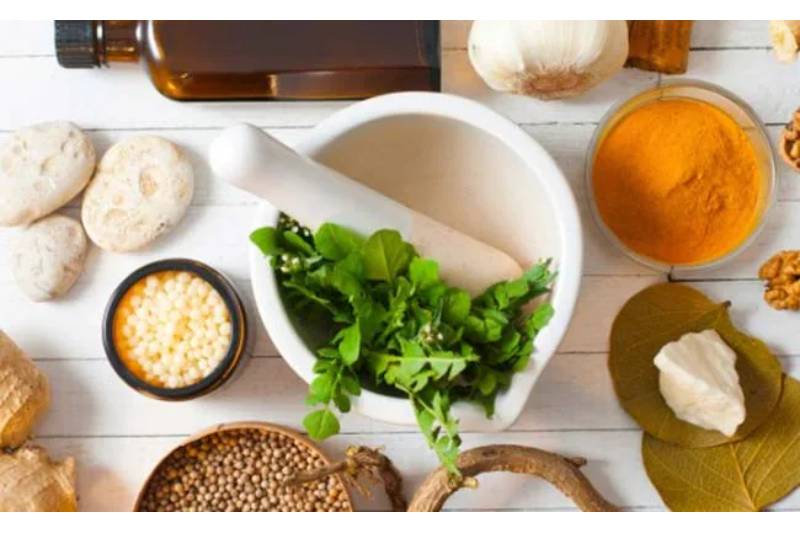Managing diabetes effectively often requires a combination of medical treatments and lifestyle changes. While conventional treatments such as medication and insulin therapy are vital, many people also turn to natural remedies rooted in traditional practices to help control their blood sugar levels. These natural methods have been used for centuries across different cultures, and research is now starting to catch up to their benefits. In this article, we’ll explore some of the most well-known Natural remedies for diabetes that have shown promise in helping manage blood sugar and improve overall health.
1. Bitter Melon (Momordica charantia)
Bitter melon, often used in Ayurvedic and Chinese medicine, is a popular natural remedy for diabetes. It contains compounds that mimic insulin, which can help lower blood sugar levels. Studies have shown that bitter melon may improve glucose uptake and promote insulin sensitivity. You can consume it as a juice, cook it, or take it in supplement form. However, it’s important to consult a healthcare provider before using bitter melon as a supplement.
2. Cinnamon
Cinnamon has been widely used in traditional medicine to help control blood sugar. Research suggests that cinnamon contains compounds that improve insulin sensitivity and may help lower blood glucose levels. Cinnamon is particularly effective in people with type 2 diabetes. You can incorporate it into your diet by sprinkling it on oatmeal, adding it to smoothies, or brewing it into tea. The best results are usually seen with Ceylon cinnamon, often referred to as “true” cinnamon, which contains lower levels of coumarin, a compound that can be harmful in large amounts.
3. Fenugreek
Fenugreek, an herb native to India, is commonly used in traditional medicine to regulate blood sugar. It contains soluble fiber, which may help slow down the absorption of carbohydrates and improve blood sugar control. Fenugreek seeds can be consumed in various forms—either as a powder added to food or in capsule form. You can also soak fenugreek seeds overnight and drink the water for added benefits.
4. Turmeric
Turmeric, a well-known anti-inflammatory herb, has been used for thousands of years in traditional medicine for a variety of ailments, including diabetes. Its active compound, curcumin, has powerful antioxidant properties that can help reduce inflammation and improve insulin sensitivity. Studies have shown that turmeric can lower blood sugar levels and may even protect against diabetic complications, such as neuropathy. It can be consumed as a spice in your meals or in supplement form.
5. Ginseng
Ginseng, particularly Korean red ginseng, has long been used in traditional medicine for its ability to improve overall health and combat fatigue. In terms of diabetes management, ginseng may help regulate blood sugar levels and improve insulin function. Some studies suggest that ginseng can help lower both fasting and post-meal blood sugar levels. You can consume ginseng as tea, in powder form, or in capsules.
6. Aloe Vera
Aloe vera is widely known for its skin benefits, but it also has medicinal properties that can help lower blood sugar levels. Aloe vera contains compounds that can improve insulin sensitivity and lower blood glucose. Some studies have shown that taking aloe vera juice or supplements can significantly reduce blood sugar in both type 1 and type 2 diabetes. Aloe vera can be consumed in liquid form or applied as a gel to the skin.
7. Apple Cider Vinegar
Apple cider vinegar has long been touted as a remedy for a variety of health issues, and it has been studied for its potential to help control blood sugar. It is believed that the acetic acid in vinegar may improve insulin sensitivity and reduce post-meal blood sugar spikes. You can dilute a tablespoon of apple cider vinegar in water and drink it before meals or add it to salad dressings. However, it’s important to consult with your healthcare provider if you plan to make apple cider vinegar a regular part of your diabetes management routine.
8. Neem Leaves
Neem, a tree native to India, has been used in Ayurvedic medicine for centuries to treat a variety of ailments, including diabetes. Research suggests that neem leaves may help lower blood sugar levels by improving insulin function and increasing the body’s ability to regulate glucose. Drinking neem leaf tea or using neem supplements can be beneficial for diabetics. However, neem should be used with caution, as it may interact with other medications.
9. Holy Basil (Tulsi)
Holy basil, or tulsi, is another herb widely used in traditional Indian medicine for its health benefits, including its ability to help manage diabetes. Holy basil is rich in antioxidants and has anti-inflammatory properties, which can help reduce blood sugar levels. Some studies suggest that holy basil may improve insulin function and reduce oxidative stress in diabetics. You can consume holy basil by brewing it into tea or incorporating it into your meals.
10. Gymnema Sylvestre
Gymnema sylvestre, an herb commonly used in Ayurvedic medicine, is known as the “sugar destroyer.” It is believed to help reduce the sugar absorption in the intestines and may lower blood sugar levels by increasing insulin secretion. Some studies suggest that gymnema may even help regenerate insulin-producing cells in the pancreas. Gymnema is often available in supplement form, but you can also consume it as a tea.
11. Black Seed (Nigella Sativa)
Black seed, also known as Nigella sativa or black cumin, has been used in traditional medicine for its various therapeutic properties, including diabetes management. Research suggests that black seed may help lower blood sugar and improve cholesterol levels in diabetics. You can consume black seed oil or powder by adding it to smoothies or meals.
12. Moringa
Moringa, often referred to as the “drumstick tree,” has been used in Ayurvedic and African traditional medicine for its health benefits, including blood sugar regulation. Moringa leaves are packed with antioxidants, vitamins, and minerals that can help lower blood glucose levels and reduce inflammation. Some studies suggest that moringa may improve insulin sensitivity. Moringa leaves can be added to soups, salads, or smoothies, or taken in supplement form.
Conclusion
While these natural remedies may help manage blood sugar and improve overall health, it’s essential to remember that they should be used in conjunction with medical treatments, not as a replacement. Always consult with your healthcare provider before adding any new natural remedies to your routine, especially if you’re on diabetes medication. These traditional practices, combined with a healthy diet, regular exercise, and proper medical care, can help you maintain optimal blood sugar levels and live a healthier life with diabetes.

 Diabetology1 week ago
Diabetology1 week ago
 Diabetology6 days ago
Diabetology6 days ago
 Diabetology1 week ago
Diabetology1 week ago
 Diabetology4 days ago
Diabetology4 days ago
 Diabetology1 week ago
Diabetology1 week ago
 Diabetology4 days ago
Diabetology4 days ago
 Diabetology2 days ago
Diabetology2 days ago
 Diabetology2 days ago
Diabetology2 days ago
















